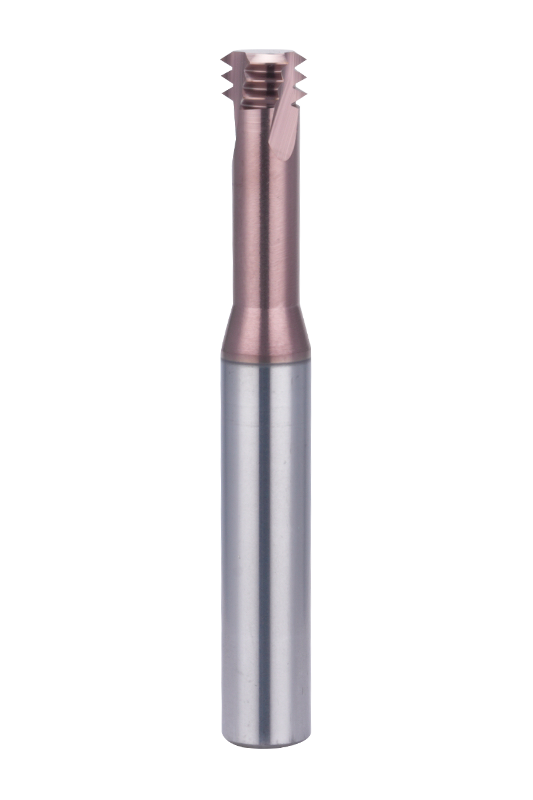Address:
No.233-3 Yangchenghu Road, Xixiashu Industrial Park, Xinbei District, Changzhou City, Jiangsu Province

Processing hard-to-machine metals presents a significant challenge in manufacturing, demanding tools that maintain precision while resisting wear and heat. A thread milling cutter stands out as a versatile solution, particularly adept at cutting threads in materials such as titanium alloys, stainless steel, and hardened steels. These materials’ toughness and heat resistance require specialized approaches, and thread milling cutters bring adaptability and enhanced performance where traditional methods may struggle.
The unique advantage of thread milling lies in its ability to mill threads with a rotating tool, reducing cutting forces and heat buildup compared to tapping or turning. When working with tough metals, this means less tool stress and a lower risk of premature failure. The thread milling cutter’s design, often featuring specific geometries and coatings, plays a crucial role in handling these materials effectively. Coatings like titanium aluminum nitride (TiAlN) help maintain hardness at elevated temperatures, while the cutter’s geometry optimizes chip evacuation and cutting engagement.
Hard materials typically generate more heat and resist chip formation, leading to rapid tool wear if the cutting parameters aren’t carefully chosen. Thread milling cutters allow operators to adjust feed rates, spindle speeds, and depth of cut dynamically, tailoring each operation to the material’s behavior. This flexibility enables manufacturers to maintain thread quality and prolong tool life, essential factors for reducing downtime and maintaining production efficiency.

Another key factor is the cutter’s ability to machine both internal and external threads with minimal vibration or chatter, which is often an issue with hardened materials. Because thread milling involves interpolating the thread profile gradually, it reduces the load on the cutter, preventing damage to both tool and workpiece. This method supports complex thread forms and larger diameters that would be problematic with other threading techniques.
Material-specific challenges extend to workholding and thermal expansion, which can affect thread accuracy. Using a thread milling cutter with carefully chosen cutting conditions minimizes thermal distortion, enabling precise threads even on challenging surfaces. This capability is particularly valuable in aerospace and medical device manufacturing, where tight tolerances and consistent thread integrity are critical.
The adaptability of thread milling cutters also extends to multi-axis CNC machining centers, where the toolpath can be programmed for complex geometries. This allows manufacturers to handle difficult materials in a single setup, reducing errors and improving throughput. Our advanced thread milling cutters are designed to meet these demands, combining durable construction with coatings that stand up to heat and abrasion.
Choosing the right thread milling cutter for hard-to-machine metals requires considering tool material, coating, geometry, and machine compatibility. Investing in high-quality thread milling cutters enhances machining stability and thread finish, turning a challenging task into a streamlined process. As a manufacturer, we provide customizable options and expert support to help customers optimize their thread milling operations and achieve superior results on tough materials.
By understanding the interaction between tool design and material properties, users can unlock the full potential of thread milling cutters in their production lines. This approach not only improves efficiency and precision but also extends tool life and reduces overall machining costs, offering tangible benefits to companies working with hard-to-process metals.